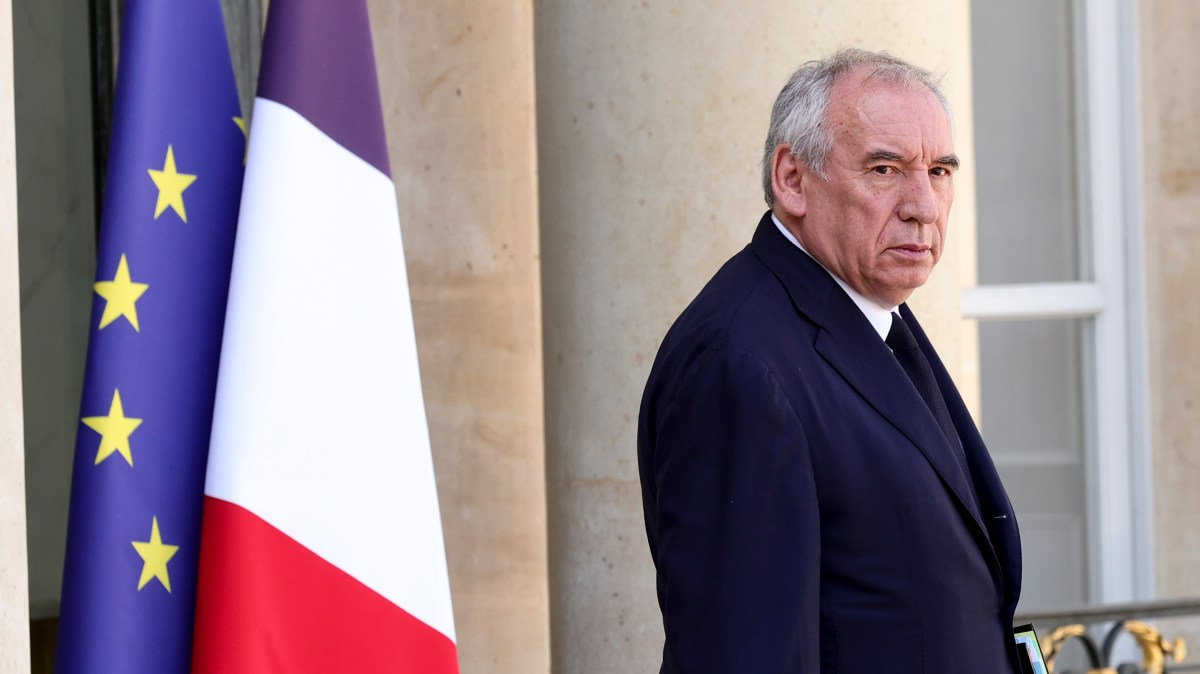France’s embattled prime minister has told voters the country faces a “catastrophe” similar to the financial crisis that hit Britain under Liz Truss if his austerity budget is rejected.
François Bayrou issued the warning in an attempt to save his job after he thrust the country deeper into political and economic turmoil by calling a vote of confidence in his centrist government on September 8.
He conceded that with all the opposition parties refusing to back his government, “at first sight” the odds were stacked against him. Bayrou is widely expected to become the second of President Macron’s prime ministers to be ousted in less than a year.
Business leaders have drawn much the same conclusion, pointing to a loss of confidence in the French economy amid rising public debt, political deadlock and threats of nationwide protests next month.
The prime minister’s budget, which includes the abolition of two bank holidays, a tax increase for pensioners and a rise of up to €50 a year in the amount that patients will be charged for medicines, is deeply unpopular. Bayrou has said that he is prepared to negotiate on all the measures except the headline requirement to reduce the deficit by €43.8 billion next year.
His announcement in an interview on TF1, the private television channel, has been interpreted as a sign that he is prepared to offer more tax rises and fewer spending cuts in an attempt to win over left-wing MPs.
“I am prepared to discuss all subjects except one, which is the need to make an effort on the level of debt,” Bayrou said, adding that he had been unable to start negotiations with his opponents beforehand because “they were all on holiday”.
• France may be heading for an IMF bailout, warns minister
He compared detractors who denied the gravity of the national debt of €3.3 trillion to passengers on a “boat that is holed and taking water and who say, ‘It doesn’t matter, we are still floating’”.
Bayrou said France was facing “two catastrophes” unless urgent action was taken. The first was higher interest rates. The second was “the difficulty that the English encountered two or three years ago and which is when you can’t find lenders”, he said. “Great Britain is a big country, an important country, and yet in six weeks the government had to leave,” he said in reference to Truss’s short-lived premiership.
Despite Bayrou’s words, the betting in Paris is that he will fall within weeks, leaving Macron to face what commentators are calling an institutional crisis.
Some critics are urging the president to call new parliamentary elections to end the deadlock that has prevailed in the National Assembly since last year, when Macron unexpectedly sent voters to the polls. Others say the only way forward is for him to go, provoking an early presidential election.
Edouard Philippe, who was Macron’s prime minister during his first term, said: “If nothing happens, if no government can prepare a budget, how do we resolve this question? Through a dissolution [of parliament]. I think it is quite inevitable.”
Yet even some moderates are now suggesting that Macron should go before the scheduled end of his second term in 2027. Jean-François Copé, the former leader of the centre-right Republicans, who are part of the government, said: “Emmanuel Macron should accept that the French people don’t want him any more. The future of the country is at stake.”
David Lisnard, the Republicans’ mayor of Cannes, another influential figure, echoed the call.
A poll by the Elabe institute for BFM, the news channel, found that 67 per cent of voters wanted Macron to resign. His prime minister is even less popular, with 72 per cent of respondents saying they hoped that Bayrou would lose the vote of confidence. Macron, who is unable to stand for a third consecutive term, has repeatedly ruled out resigning.
The budget has also resulted in calls for what is being described as the “let’s block everything” movement, which is behind protests across the country due to start on September 10.
Observers say the threatened social upheaval and anticipated government collapse is worsening economic woes, putting investment on hold and making the markets nervous, while businesses postpone key decisions and consumers choose to save rather than spend.
Catherine MacGregor, managing director of the energy giant Engie, said: “A country that can offer businesses and investors stability, constancy and visibility will win. I was surprised to see to what extent politicians do not realise that.”
